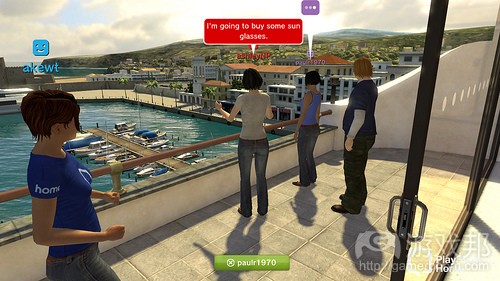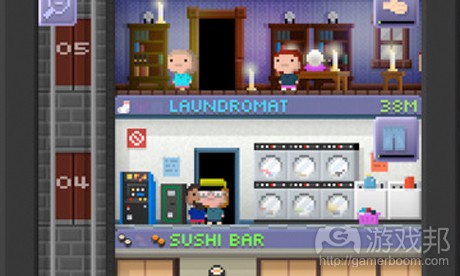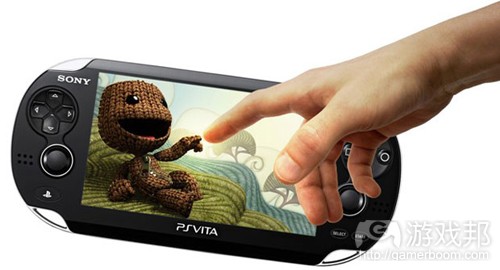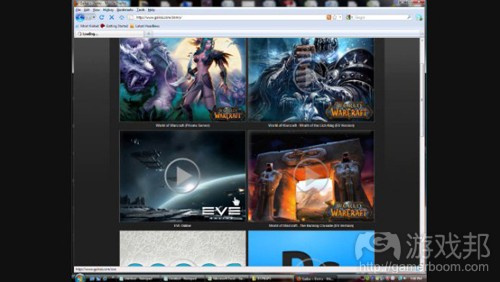数字化过渡时期,谁是赢家谁是输家?
作者:Nicholas Lovell
这篇文章是我准备在伦敦游戏大会上发言的内容,是我比较数字和零售产品的游戏体验后,罗列出的数字化时代的赢家及输家名单。
Zynga–输家
Zynga是免费游戏和社交游戏的代表,但是它对于用户留存率以及游戏盈利所采取的方法却让我感到厌烦,所以我将其归列为输家。该公司的盈利方式像是在不计一切地剥削玩家,我认为Zynga发展即将到达一个临界点。
Zynga是时候开始从用户的角度进行思考,否则他们将会意识到即使再多的市场营销费用也不能弥补大量流失的Facebook用户基础。
PlayStation Home–赢家
PlayStation Home(游戏邦注:是由Sony 公司开发的一个基于PS3平台、完全模拟真实世界的3D虚拟社区)是索尼旗下一个默默无闻的资产。它与《Second Life》一样,各种品牌可以在此向玩家推销广告。对我来说,这就像是掌机上的一个虚拟世界,并且在这里还有简单的购买系统,用户可以花钱购买一些与游戏相关的产品。
而如果PlayStation Home要想成为赢家,那么索尼电脑娱乐的高管就必须改变观察。如此,Home方能成为PlayStation业务的一种免费增值的创收引擎。
Nimblebit(美国游戏开发商)–赢家
由于采用了近乎完美的盈利策略,该公司旗下的《口袋青蛙》和《Tiny Tower》保守估计已赚得了3百万美元收益。如果你想要制作一款具有吸引力的免费游戏,那么你可以尝试这两款游戏。
这家公司之所以会被我列在赢家名单中不只是因为这两款游戏,而且因为它的成功代表独立开发者能够创造出让特殊玩家感兴趣的游戏,并且从中获得较大利益。
订阅型MMO游戏–输家
“订阅”曾经是最受游戏发行商欢迎的一种手段。但是如果是从50美元的游戏要价变成每个月在预付款的基础上多加15美元的费用,这样的变化真的让人感到惊讶。
事实的真相是,订阅费用总是存在上限。这就意味着那些不喜欢游戏的玩家每天也要支付与忠实玩家同等的费用。而这也同样意味着你不能够为那些支付目标不同的玩家提供不同的价值。这将会影响你的收益,并且这种方法只适合销量较大的产品。
但是最近也一些此类游戏取得了成功,最显著的便是《Rift》,但是说实在的,需要订阅的MMO游戏真的已经过时了,而收费灵活的免费增值模式才是王道。
手持式设备–输家
索尼PS Vita?任天堂3DS?iPhone?或者iPad哪一款才是你眼中最令人满意的产品?
手持式设备已经受到无所不在的智能手机威胁,这些移动设备不只灵活,有效率,而且对于那些手机订阅用户来说还能够提供大量折扣。
对于这些手持式设备来说,最大的悲剧是还有一些人出于某些目的而“需要”它们。发行商需要它们,因为手持式设备能够帮助他们维持软件的高价。而有些用户则认为需要它们是最好的游戏平台,所以需要它们。
这里所说的“一些”远远不够,虽然现在并不是所有人都放弃了手持式设备,但这种“一些”是指20%还是30的用户?虽然我们不清楚具体的数字,但是可以预见手持式设备的命运堪忧。
我们也许是最后一代使用手持式设备的人。
Gaikai(游戏邦注:游戏云计算服务供应商)–赢家
未来的游戏发行将会通过云媒体来进行,我们的等离子电视机中都会安装那些不是很昂贵的数字版权管理(DRM)加强装置。
虽然我真的很怀疑OnLive(游戏邦注:由美国OnLive公司推出的云计算游戏点播平台服务)面向消费者的商业模式,但是Gaikai正在建立一个平台以更快地提供更多好游戏给消费者。
而因此它也出现在我的赢家名单中。
THQ(北美第三大游戏制作与发行商)–输家
也许你会觉得THQ不应该出现在这里,但是他们的的确确是“受挤压的中间者”的显著代表。我认为游戏所面临的选择要不就是走向更大市场,要不就是走进细分市场。而THQ却正好卡在这两者之间。我不知道THQ到底有什么杀手极的IP。他们是正以不对称的实力与一些高手们较量。
我曾经提到过,AAA级游戏发行领域应该有5-7个顶尖公司的席位,但我却看不出THQ可以在那里立足。
亚马逊–赢家
亚马逊凭借着其强大的亚马逊网络服务而迅速壮大,并成为了世界上最大的零售商之一。该公司的Kindle已经完成了书籍发行市场的成功转型,而其平板电脑Kindle Fire则是基于Android系统的iPad最大竞争者之一。
也许亚马逊不是赢家名单中最出色的一例,但是它确实颇具远见,抓住了最大的市场机遇。
游戏邦注:原文发表于2011年11月10日,所涉内容仅代表原作者观点。 (本文为游戏邦/gamerboom.com编译,拒绝任何不保留版权的转载,如需转载请联系:游戏邦)
The digital transition–Who is a hero and who is a Zero
Nicholas Lovell
If you’re reading this as it is posted, I should be taking the stage at the London Games Conference to convince 200 gaming industry bigwigs of the companies that I think are going to be winners or losers as digital outstrips physical as the primary way we distribute and experience games.
Here’s my list. Once the conference is over, I’ll update GAMESbrief with whether I was able to convince the audience of my points of view
Zynga – ZERO
It may have been a poster-child for free-to-play and social games, but its continuing cynical approach to retention and monetisation makes Zynga a zero in my mind. It saw an opportunity, exploited it ruthlessly but I feel a tipping point coming.
Time for Zynga to start caring about its customers, or it will realise that no amount of marketing spend can make up for the fact that you have burned through the entire Facebook user base several times.
PlayStation Home – HERO
PlayStation Home is a unsung asset at Sony. Too many, it is a place where brands can advertise to gamers, an unloved, unsung, unused Second Life. To me, it is a console-quality virtual world with an easy purchase system and users who are prepared to spend money on game-related content.
For PlayStation Home to become a hero requires a change of mindset amongst senior SCE executives. If that happens, Home becomes the stealth free-to-play engine of the PlayStation business.
Nimblebit – HERO
The developers of Pocket Frogs and Tiny Tower are making, conservatively, three million bucks from their perfectly-executed free-to-play smartphone strategy. If you have an interest in how to make great, engaging, freemium games, you should check them out.
They’re in my hero list not just for themselves, but as representatives of the opportunity for indie developers to create games that appeal to particular audiences and to make lots of money from them.
Subscription MMOs – ZERO
Subscriptions used to be a holy grail for game publishers. Moving from being able to get one payment of $50 from a customer to getting that upfront payment PLUS $15 a month seemed like an amazing result.
But the truth is that a subscription fee is a cap on revenue. It means that people who barely like your game are paying the same amount as those who love it to bits and pay every day. It means that you can’t offer people the opportunity to pay for different things that they value. It is a limit on the amount of money that you can make, and it is only suited to the most mass-market of products.
There have been recent successes, notably Rift, but subscription MMOs are going the way of the dodo. The flexibility of free-to-play will win.
Handhelds – ZERO
The PS Vita? The 3DS? The iPhone? The iPad? Which do you think is a more generally desirable product.
The handhelds are threatened by ubiquitous, powerful machines that are flexible, do lots of things well, and are sold for massive discounts to people who are paying for mobile phone subscriptions.
The tragedy for handhelds is that some people still want them. Publishers want them because they allow publishers to keep software prices high. Some consumers want them because they are better gaming platforms.
“Some” isn’t enough. It doesn’t take everyone to abandon handhelds, it just takes “enough”. How much is enough? 20%? 30%? The exact figure is unclear, but the portents are frightening.
We’ve seen the last generation of dedicated handhelds.
Gaikai – HERO
The future of gaming is through cloud-distribution, not expensive pieces of DRM-enforcing plastic sitting underneath our plasma screens.
I remain deeply sceptical of OnLive’s consumer-facing business model, but Gaikai is building a platform to help companies bring games to consumers instantly.
That makes it a hero in my book.
THQ – ZERO
It feels a little unfair to single out THQ, but they are representative of the “squeezed middle.” I believe that the two options for games are to go big or go niche. THQ is trapped inbetween. I can’t think of a single must-have IP that THQ own. They are competing with the big boys on unequal terms.
I’ve argued before that there is room for 5-7 players at the top table of AAA publishers. I struggle to see THQ earning a place there.
Amazon – HERO
Amazon is responsible for the massive growth in Internet startups through its Amazon Web Services. It has become one of the largest retailers in the world. Its Kindle has begun the transformation of the book publishing market and the Kindle Fire looks like a credible, Android-based competitor to the iPad.
Amazon may not be the sexiest company on the list but it has the broadest view of the opportunities in the market.(source:gamesbrief)
上一篇:解析游戏趣味性的成因及7项要素











































 闽公网安备35020302001549号
闽公网安备35020302001549号